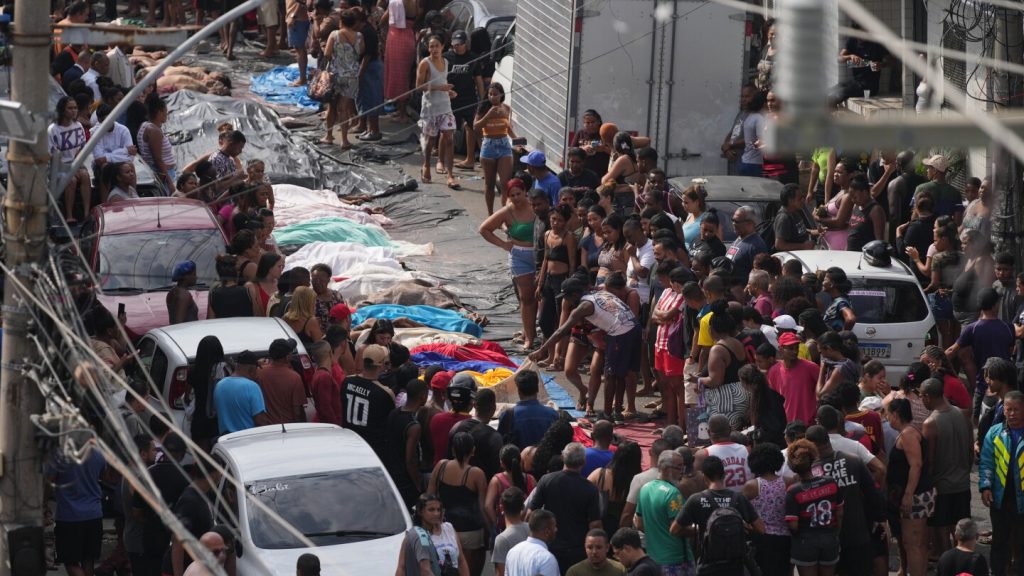Police Raid in Rio de Janeiro Leads to Protests and Calls for Accountability
RIO DE JANEIRO (AP) — A large-scale police operation targeting a drug gang in Rio’s low-income neighborhoods resulted in at least 119 fatalities, igniting protests against the perceived excessive use of force and demands for the resignation of the state’s governor. Residents from various favelas gathered outside the government’s headquarters, shouting “assassins!” while brandishing Brazilian flags marked with red paint, following the city’s most lethal raid.
In a display of grief and outrage, families laid numerous bodies on the street within one of the affected communities, highlighting the extent of the police action. Concerns regarding the accuracy of the death toll and the condition of the bodies emerged, with reports indicating signs of mutilation and stab wounds. Brazil’s Supreme Court, along with prosecutors and lawmakers, called upon Governor Claudio Castro for a comprehensive report on the operation.
“This was a massacre,” lamented Barbara Barbosa, a resident from Penha, one of the favelas targeted, whose son was previously killed during a police action. Activist Rute Sales echoed similar sentiments, questioning the justification behind the killing. Many residents arrived from Penha on motorbikes to voice their outrage at Guanabara Palace.
Initially, officials reported 60 gang members dead during the raid, but this figure quickly rose to a total of 115 suspects alongside four police officers. Felipe Curi, the police secretary, explained that more bodies were discovered in wooded areas where suspects were involved in armed conflict while masking their identities.
Trucks collected bodies, which residents condemned as unjust. One local stated that many victims were still alive and calling for assistance when police intervened. Out of the operation, 113 reputed gang members were apprehended, with authorities seizing nearly 90 rifles and over a ton of narcotics.
The police, supported by helicopters and armored vehicles, visually engaged gang members, leading to chaos throughout the city. Educational institutions and local businesses were shut down in anticipation of violence. Activists underscored the brutality of the police methods witnessed during these operations, which are not new to Rio, but the scale of this incident raised alarms among human rights groups globally.
President Luiz Inácio Lula da Silva condemned organized crime and asserted the need for law enforcement reforms, emphasizing that Brazil should not tolerate the ongoing violence impacting families and communities. Officials continue to address the balance of necessary aggressive tactics against criminal organizations and the preservation of human rights within enforcement actions.



